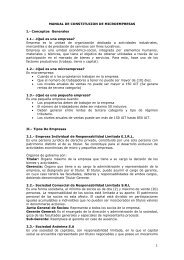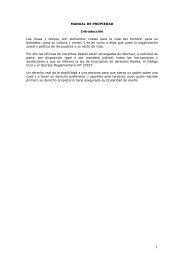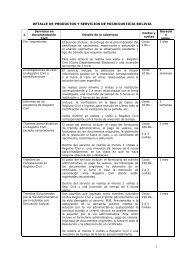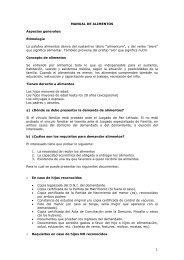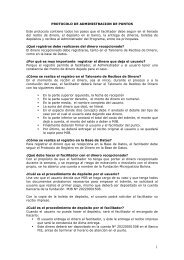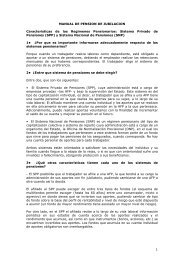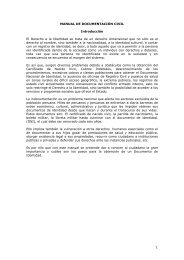ICISS report - International Coalition for the Responsibility to Protect
ICISS report - International Coalition for the Responsibility to Protect
ICISS report - International Coalition for the Responsibility to Protect
You also want an ePaper? Increase the reach of your titles
YUMPU automatically turns print PDFs into web optimized ePapers that Google loves.
The <strong>Responsibility</strong> <strong>to</strong> <strong>Protect</strong> 52<br />
6.23 While <strong>the</strong> Council has from time <strong>to</strong> time demonstrated a commitment and a capacity<br />
<strong>to</strong> fulfill this responsibility, <strong>to</strong>o often it has fallen short of its responsibilities, or failed <strong>to</strong><br />
live up <strong>to</strong> expectations. Sometimes this has been <strong>the</strong> result of a sheer lack of interest on <strong>the</strong><br />
part of <strong>the</strong> five permanent members. Sometimes it has been because of anxiety about how<br />
a particular commitment would play in domestic politics. Often in <strong>the</strong> past, it has been <strong>the</strong><br />
result of disagreements among <strong>the</strong> five permanent members on what if any action should<br />
be taken. Increasingly, it has resulted from a reluctance on <strong>the</strong> part of some key members <strong>to</strong><br />
bear <strong>the</strong> burdens – especially <strong>the</strong> financial and personnel burdens – of international action.<br />
6.24 It is especially important that every ef<strong>for</strong>t be made <strong>to</strong> encourage <strong>the</strong> Security Council<br />
<strong>to</strong> exercise – and not abdicate – its responsibility <strong>to</strong> protect. This means, as Article 24 of<br />
<strong>the</strong> Charter requires, prompt and effective engagement by <strong>the</strong> Council when matters of<br />
international peace and security are directly at issue. And it means clear and responsible<br />
leadership by <strong>the</strong> Council especially when significant loss of human life is occurring or is<br />
threatened, even though <strong>the</strong>re may be no direct or imminent threat <strong>to</strong> international peace<br />
and security in <strong>the</strong> strict sense.<br />
6.25 The UN exists in a world of sovereign states, and its operations must be based in<br />
political realism. But <strong>the</strong> organization is also <strong>the</strong> reposi<strong>to</strong>ry of international idealism, and<br />
that sense is fundamental <strong>to</strong> its identity. It is still <strong>the</strong> main focus of <strong>the</strong> hopes and aspirations<br />
<strong>for</strong> a future where men and women live at peace with each o<strong>the</strong>r and in harmony with<br />
nature. The reality of human insecurity cannot simply be wished away. Yet <strong>the</strong> idea of a<br />
universal organization dedicated <strong>to</strong> protecting peace and promoting welfare – of achieving<br />
a better life in a safer world, <strong>for</strong> all – survived <strong>the</strong> death, destruction and disillusionment of<br />
armed conflicts, genocide, persistent poverty, environmental degradation and <strong>the</strong> many<br />
assaults on human dignity of <strong>the</strong> 20 th century.<br />
6.26 For <strong>the</strong> UN <strong>to</strong> succeed, <strong>the</strong> world community must match <strong>the</strong> demands made on<br />
<strong>the</strong> organization by <strong>the</strong> resources given <strong>to</strong> it. The UN has <strong>the</strong> moral legitimacy, political<br />
credibility and administrative impartiality <strong>to</strong> mediate, moderate and reconcile <strong>the</strong> competing<br />
pulls and tensions that still plague international relations. People continue <strong>to</strong> look <strong>to</strong><br />
<strong>the</strong> UN <strong>to</strong> guide and protect <strong>the</strong>m when <strong>the</strong> tasks are <strong>to</strong>o big and complex <strong>for</strong> nations and<br />
regions <strong>to</strong> handle by <strong>the</strong>mselves. The comparative advantages of <strong>the</strong> UN are its universal<br />
membership, political legitimacy, administrative impartiality, technical expertise, convening<br />
and mobilizing power, and dedication of its staff.<br />
6.27 The UN represents <strong>the</strong> idea that unbridled nationalism and <strong>the</strong> raw interplay of power<br />
must be mediated and moderated in an international framework. It is <strong>the</strong> centre <strong>for</strong><br />
harmonizing national interests and <strong>for</strong>ging <strong>the</strong> international interest. Only <strong>the</strong> UN can<br />
authorize military action on behalf of <strong>the</strong> entire international community, instead of a select<br />
few. But <strong>the</strong> UN does not have its own military and police <strong>for</strong>ces, and a multinational<br />
coalition of allies can offer a more credible and efficient military <strong>for</strong>ce when robust action<br />
is needed and warranted. What will be increasingly needed in <strong>the</strong> future are partnerships of<br />
<strong>the</strong> able, <strong>the</strong> willing and <strong>the</strong> well-intended – and <strong>the</strong> duly authorized.



